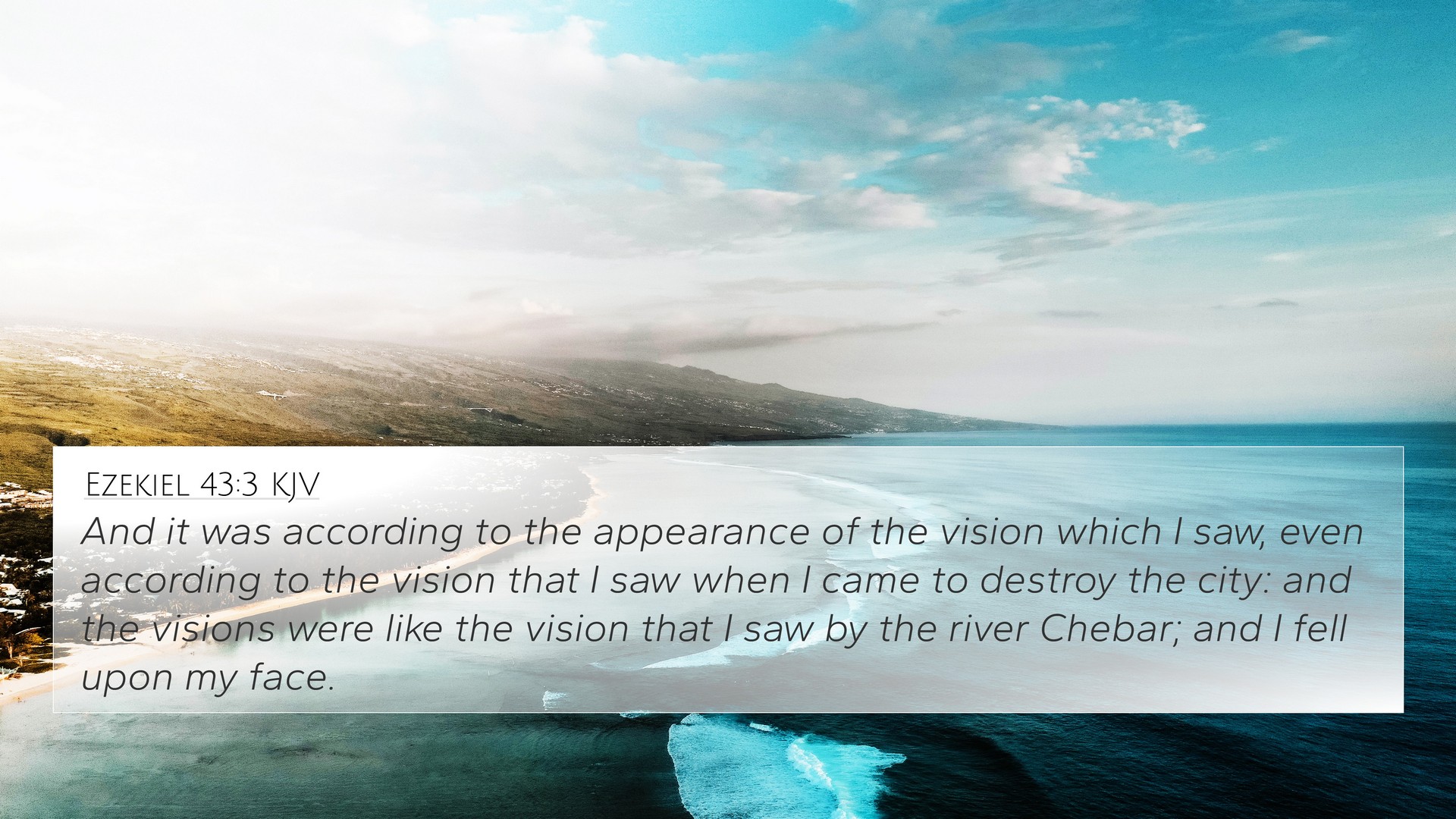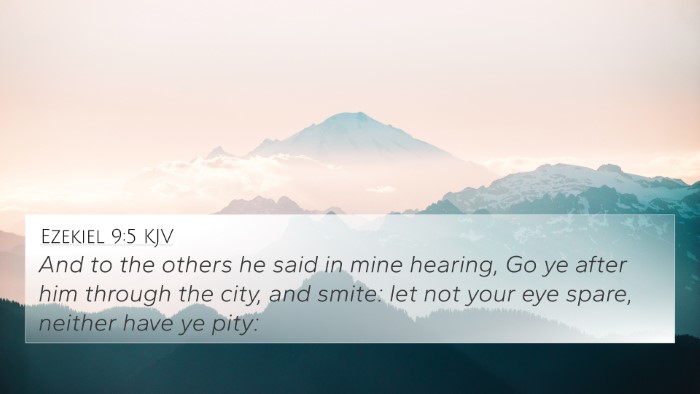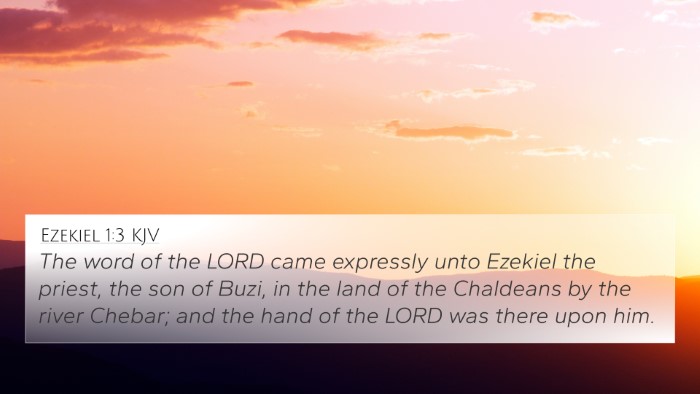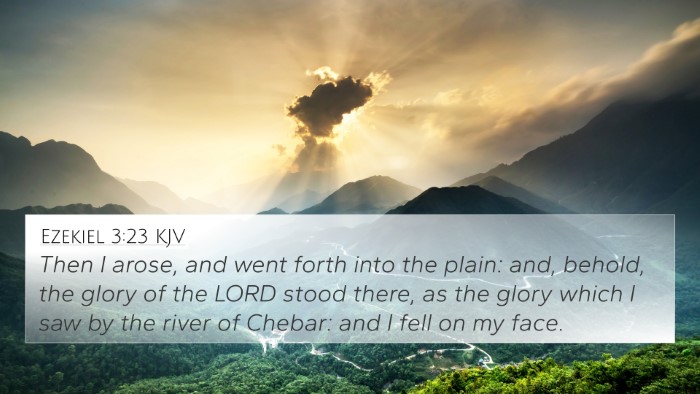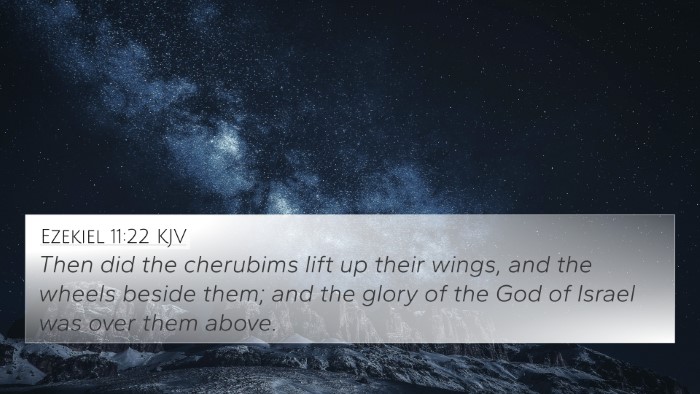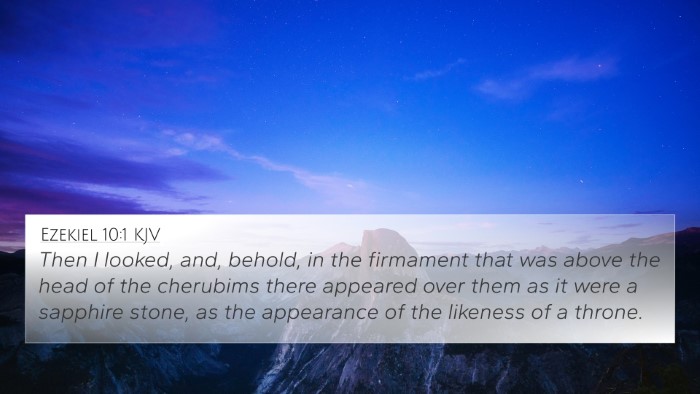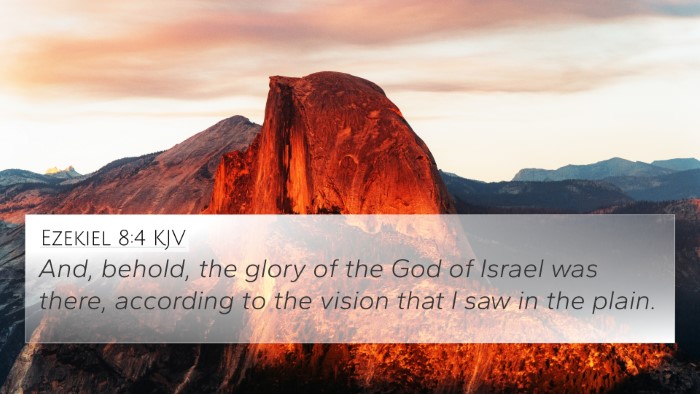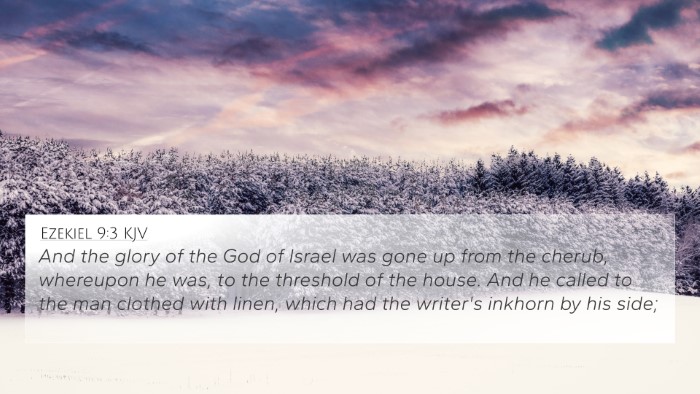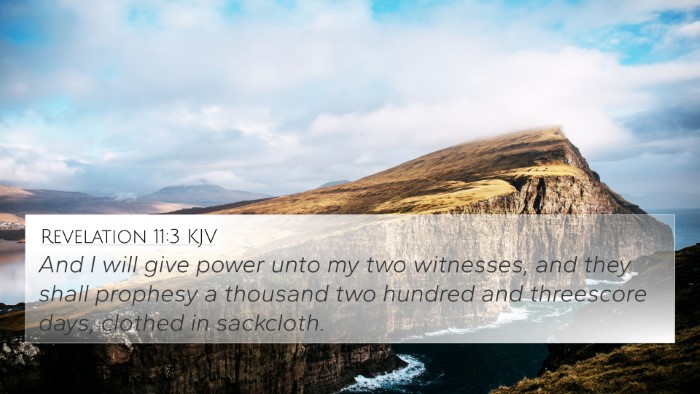Understanding Ezekiel 43:3
Ezekiel 43:3 reads: "And it was according to the appearance of the vision which I saw, even according to the vision that I saw when I came to destroy the city; and the visions were like the vision that I saw by the river Chebar; and I fell upon my face."
This verse conveys profound insights into Ezekiel's prophetic experiences, emphasizing the seriousness of the divine visions given to him. The appearance of the divine glory, linked to previous encounters, signifies a form of continuity in God’s revelations to His prophets.
Interpretative Insights by Commentaries
-
Matthew Henry:
Henry emphasizes that Ezekiel's vision is a reflection of God's unchanging nature and divine sovereignty. The vision's intensity reminds the prophet of God's previous judgments and their implications for Israel's future. This connection draws on past experiences to underscore the gravity of the responsibility assigned to Ezekiel as a prophet.
-
Albert Barnes:
Barnes notes that the vision's context is critical; it recalls the destruction of Jerusalem. The phrase "river Chebar" signifies prior revelations to Ezekiel, highlighting that his insights are firmly anchored in past prophetic experiences. This aspect of recalling imagery serves to remind the people of Israel about their rebellious nature and God's subsequent judgment.
-
Adam Clarke:
Clarke interprets the passage with a focus on the depth of Ezekiel's spiritual encounters. By mentioning that he fell upon his face, it illustrates a profound reaction of humility and reverence in the presence of divine glory. Clarke encourages readers to grasp the broader context of God's holiness, which is a recurrent theme throughout the prophetic books.
Bible Verse Cross-References
Several Bible verses relate to Ezekiel 43:3, providing a comprehensive framework to understand its significance:
- Ezekiel 1:28 - The vision of the glory of the Lord as a continuation of divine revelation.
- Isaiah 6:1-5 - Isaiah's vision and how encountering God leads to a sense of humility and recognition of sin.
- Revelation 1:17 - John falling at the feet of Christ, showcasing a similar response to divine majesty.
- Jeremiah 1:9-10 - God touching Jeremiah’s mouth and the divine calling to speak to nations, paralleling Ezekiel’s role.
- Ezekiel 8:3 - Previous visions of abominations in the city motivating the prophetic message.
- Exodus 33:18 - Moses’ request to see God’s glory, reflecting the holiness dynamic present in Ezekiel’s experience.
- Habakkuk 2:20 - A verse emphasizing God’s holiness in His temple, linking to reverence before the divine.
Connecting Themes and Interpretations
The themes present in Ezekiel 43:3 are mirrored in numerous other scriptures, facilitating a deeper understanding through cross-referencing Biblical texts:
- The Vision and Glory of God: The repeated emphasis on God's majesty across prophetic literature points to a universal acknowledgment of God's sovereign character.
- Prophetic Responsibility: The weight of prophetic duty is evident in several prophetic writings, reinforcing Ezekiel's role as a watchman (Ezekiel 3:17).
- Repentance and Divine Judgment: The recurring theme of judgment tied to Israel's unfaithfulness aligns with prophetic warnings throughout the Bible.
The Significance of Cross-Referencing Bible Texts
Understanding the connections between Bible verses enhances comprehension of scriptural themes:
- It aids in recognizing patterns of divine interaction throughout history.
- Provides tools for deeper Bible study, guiding readers to related scriptures that illuminate thematic consistencies.
- Encourages a comprehensive approach to Bible study, allowing for holistic interpretations across testaments.
- Fosters an environment for theological discussion about the nature of God and human response.
Tools for Cross-Referencing
Utilizing resources such as a bible concordance or a bible cross-reference guide can significantly enhance one's study:
- These tools help identify **connections between Old and New Testaments**.
- Readers can explore **cross-referenced themes** effectively, enriching their understanding of scripture.
- They offer insights into **comparable analysis** between prophetic pronunciations and apostolic teachings.
Conclusion
Ezekiel 43:3 serves as a potent reminder of God’s glory and the expected reverence in light of divine revelation. By engaging in cross-referencing and thematic analysis, readers can grasp the continuity of God’s message throughout scripture, leading to a deeper appreciation of both the prophet's experience and the ongoing dialogue between God and His people.
